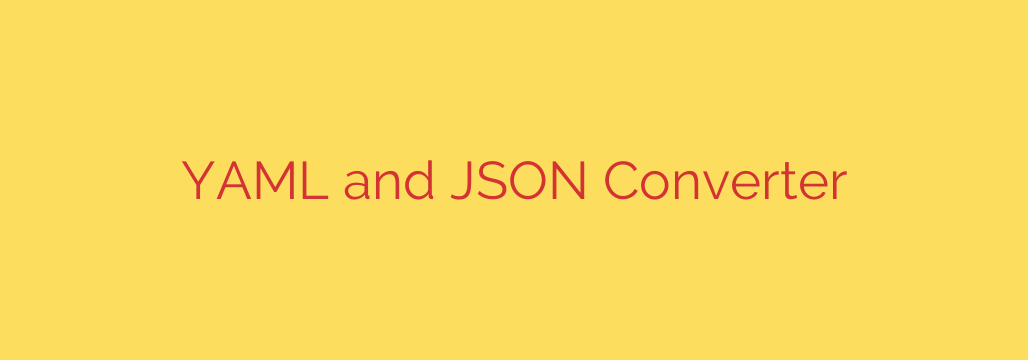
Managing data in modern development and configuration often involves various formats. Two of the most common and widely used are YAML and JSON. While both are designed for structured data and are relatively easy for humans to read, they have distinct syntaxes and conventions. This difference frequently creates a need to convert data between these formats.
YAML, or Yet Another Markup Language, is particularly popular for configuration files, known for its minimalist syntax that relies heavily on indentation. It’s designed to be highly human-readable. JSON, or JavaScript Object Notation, is a lightweight format built on a subset of the JavaScript programming language standard. It’s extremely common for data interchange on the web, APIs, and data storage.
The necessity to convert arises because different applications or systems might require data in a specific format. A configuration system might expect YAML, while a web API requires JSON. Manually transforming complex data structures between these formats is prone to errors, especially with large or nested data. This is where a dedicated converter tool becomes essential.
A reliable YAML and JSON converter simplifies this process significantly. Users can simply input their data in one format (either YAML or JSON) into the tool. The converter then parses the input, understands its structure, and generates the equivalent representation in the other format quickly and accurately. Good tools often include validation features, ensuring the input data is correctly formatted before attempting conversion and flagging any errors.
Using a specialized conversion tool offers several key advantages. It saves valuable time compared to manual conversion, eliminates the risk of syntax errors introduced during hand-editing, and ensures the data structure remains consistent across formats. For developers, system administrators, and anyone working with diverse data sources, a high-quality YAML and JSON converter is an indispensable tool for seamless data compatibility and efficient workflow. It bridges the gap between these two powerful data formats, making your data work wherever you need it to.
Source: https://linuxhandbook.com/tools/yaml-json-converter/








